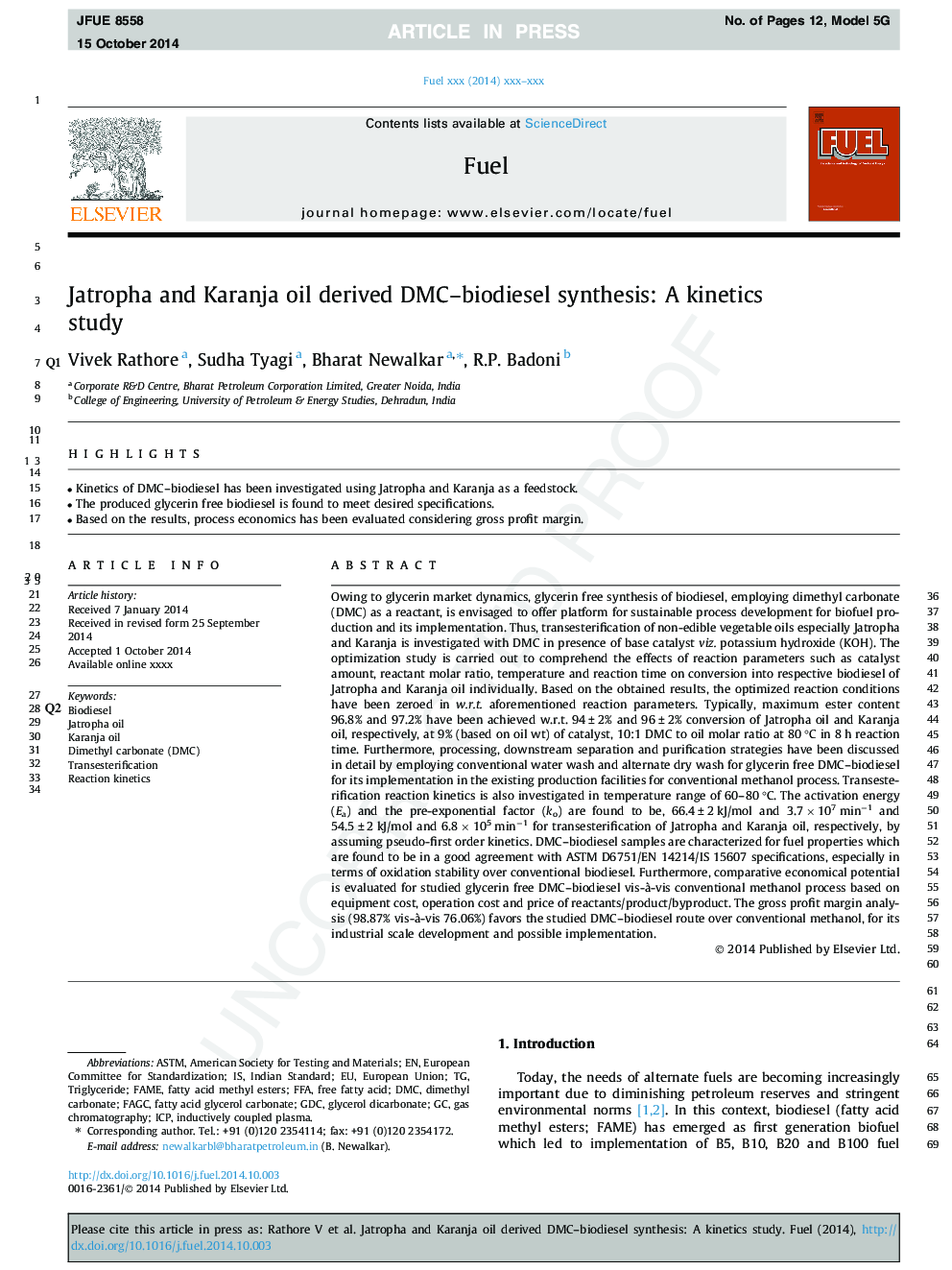| Article ID | Journal | Published Year | Pages | File Type |
|---|---|---|---|---|
| 6636361 | Fuel | 2015 | 12 Pages |
Abstract
Owing to glycerin market dynamics, glycerin free synthesis of biodiesel, employing dimethyl carbonate (DMC) as a reactant, is envisaged to offer platform for sustainable process development for biofuel production and its implementation. Thus, transesterification of non-edible vegetable oils especially Jatropha and Karanja is investigated with DMC in presence of base catalyst viz. potassium hydroxide (KOH). The optimization study is carried out to comprehend the effects of reaction parameters such as catalyst amount, reactant molar ratio, temperature and reaction time on conversion into respective biodiesel of Jatropha and Karanja oil individually. Based on the obtained results, the optimized reaction conditions have been zeroed in w.r.t. aforementioned reaction parameters. Typically, maximum ester content 96.8% and 97.2% have been achieved w.r.t. 94 ± 2% and 96 ± 2% conversion of Jatropha oil and Karanja oil, respectively, at 9% (based on oil wt) of catalyst, 10:1 DMC to oil molar ratio at 80 °C in 8 h reaction time. Furthermore, processing, downstream separation and purification strategies have been discussed in detail by employing conventional water wash and alternate dry wash for glycerin free DMC-biodiesel for its implementation in the existing production facilities for conventional methanol process. Transesterification reaction kinetics is also investigated in temperature range of 60-80 °C. The activation energy (Ea) and the pre-exponential factor (ko) are found to be, 66.4 ± 2 kJ/mol and 3.7 Ã 107 minâ1 and 54.5 ± 2 kJ/mol and 6.8 Ã 105 minâ1 for transesterification of Jatropha and Karanja oil, respectively, by assuming pseudo-first order kinetics. DMC-biodiesel samples are characterized for fuel properties which are found to be in a good agreement with ASTM D6751/EN 14214/IS 15607 specifications, especially in terms of oxidation stability over conventional biodiesel. Furthermore, comparative economical potential is evaluated for studied glycerin free DMC-biodiesel vis-à -vis conventional methanol process based on equipment cost, operation cost and price of reactants/product/byproduct. The gross profit margin analysis (98.87% vis-à -vis 76.06%) favors the studied DMC-biodiesel route over conventional methanol, for its industrial scale development and possible implementation.
Keywords
DMCGDCFFAICPASTMEuropean UnionIndian standardFree fatty acidBiodieselTransesterificationtriglycerideAmerican society for testing and materialsDimethyl carbonate (DMC)Dimethyl carbonateJatropha oilFAMEfatty acid methyl estersKaranja oilinductively coupled plasmaGas chromatographyEuropean Committee for Standardization
Related Topics
Physical Sciences and Engineering
Chemical Engineering
Chemical Engineering (General)
Authors
Vivek Rathore, Sudha Tyagi, Bharat Newalkar, R.P. Badoni,
